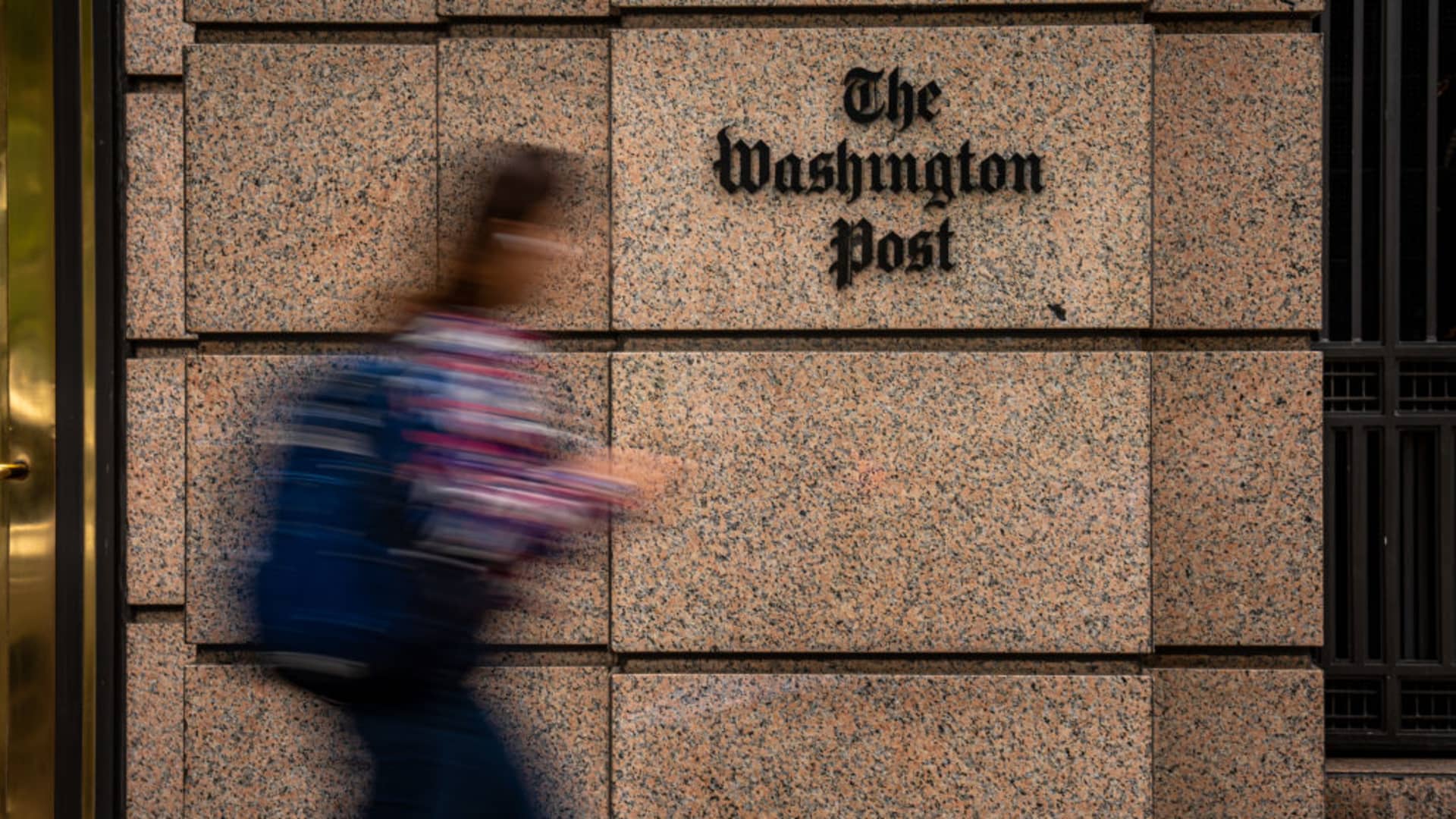The Washington Post is facing a significant backlash following owner Jeff Bezos’s decision to halt an endorsement of Vice President Kamala Harris for president. Over 200,000 digital subscribers reportedly canceled their subscriptions as of midday Monday, with cancellations still rising. This represents about 8% of the paper’s subscriber base, with many more cancellations expected. Amid these numbers, the Post remains tight-lipped, declining to comment due to its privately held status.
Former Post Executive Editor Marcus Brauchli emphasized the public’s confusion over the reasoning behind Bezos’s decision, noting, “People don’t know why the decision was made.” The timing, just days before a close race between Harris and former President Donald Trump, raises questions for readers and critics alike.
The Shift to “Independence”
Publisher Will Lewis stated that the decision to stop presidential endorsements is part of a return to the paper’s “independent” roots. However, some, including former Executive Editor Marty Baron, remain skeptical, arguing that such a shift would make more sense outside an election cycle. “If this had happened years ago, maybe it would have felt more genuine,” Baron commented. “But this timing clearly raises questions.”
In a self-published opinion piece, Bezos described the decision as one of principle, saying it was meant to avoid any perception of bias. He admitted the timing was “less than ideal,” but denied any intent to appease Trump or safeguard his other business interests, including his space venture, Blue Origin, which holds government contracts. Bezos dismissed claims of a quid pro quo, affirming that the decision was made independently of political influence.
Internal and Public Reactions
In the days following the announcement, the Washington Post saw the resignations of columnists and editorial board members. Molly Roberts, one of the departing writers, issued a warning about the potential consequences of staying silent, stating, “The quieter we are, the closer Trump comes to unchecked power.” Another notable resignation was David Hoffman, Pulitzer-winning writer, who highlighted the Post’s role as a “beacon” for democratic values and its historical duty to expose injustices worldwide.
Public reactions to Bezos’s decision were swift. Numerous Washington Post journalists reported that their own friends and family had canceled subscriptions in response to the editorial shift. Columnist Alexandra Petri’s article, humorously endorsing Harris, garnered over 174,000 views, making it one of the day’s most-read pieces.
Controversy Surrounding Blue Origin
The timing of the announcement raised additional questions when reports emerged that Blue Origin executives had met with former President Trump shortly after Bezos’s decision went public. Bezos stated he was unaware of this meeting, though he acknowledged his involvement in other enterprises does complicate his ownership of the Post. Despite this, he maintained that his record as an independent owner since 2013 should dispel any doubts about his commitment to the paper’s editorial freedom.
The Future of the Washington Post’s Editorial Voice
As the Washington Post transitions away from election endorsements, readers and staff alike question the paper’s future direction. Former columnist Robert Kagan expressed his concern, saying, “We’re backing down because we’re worried about Trump’s reaction.” Others believe that the change could reflect a broader trend towards maintaining an unbiased appearance as media outlets navigate a polarized landscape.
Bezos’s choice to end endorsements may stem from a desire to uphold journalistic neutrality, yet its timing has fueled an intense public debate. Whether this shift strengthens the Washington Post’s independence or distances it from its tradition of vocal editorial stances remains to be seen, but it’s clear the decision has sent ripples across the media world and beyond.
![]()

bmjta8